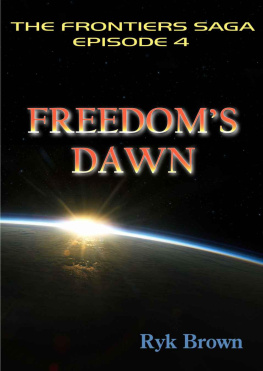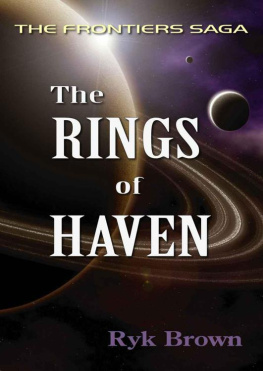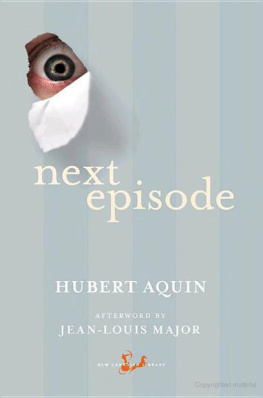Pol Boulz - A Distant Episode
Here you can read online Pol Boulz - A Distant Episode full text of the book (entire story) in english for free. Download pdf and epub, get meaning, cover and reviews about this ebook. genre: Prose. Description of the work, (preface) as well as reviews are available. Best literature library LitArk.com created for fans of good reading and offers a wide selection of genres:
Romance novel
Science fiction
Adventure
Detective
Science
History
Home and family
Prose
Art
Politics
Computer
Non-fiction
Religion
Business
Children
Humor
Choose a favorite category and find really read worthwhile books. Enjoy immersion in the world of imagination, feel the emotions of the characters or learn something new for yourself, make an fascinating discovery.

A Distant Episode: summary, description and annotation
We offer to read an annotation, description, summary or preface (depends on what the author of the book "A Distant Episode" wrote himself). If you haven't found the necessary information about the book — write in the comments, we will try to find it.
A Distant Episode — read online for free the complete book (whole text) full work
Below is the text of the book, divided by pages. System saving the place of the last page read, allows you to conveniently read the book "A Distant Episode" online for free, without having to search again every time where you left off. Put a bookmark, and you can go to the page where you finished reading at any time.
Font size:
Interval:
Bookmark:
Paul Bowles
A Distant Episode
(1910-)
No one who reads this story ever forgets it, though one might well wish to forget it, like a bad dream that imposes itself, with ominous significance, upon the daylight, civilized world. Though "A Distant Episode" has become the most frequently anthologized of Paul Bowles's fiction, I could not resist including it here. It is both the highest achievement of this intransigent artist's work in fiction and representative of his imagination generally.
Born in New York City, Paul Bowles has had two distinct careers: as a composer, and as a writer and translator. During the 1930's and 1940's he was a music critic for the New York Herald Tribune, and wrote musical scores for Broadway. Since 1945, he has lived in Tangier, and has concentrated upon literature. His first novel, The Sheltering Sky, was published in 1949 to considerable acclaim and notoriety; subsequent titles established his reputation as a chronicler of a world almost entirely devoid of the "manners" that constitute most works of fiction in our tradition. These are the story collections The Delicate Prey (1950), The Time of Friendship (1967), and Collected Stories (1979); the novels Let It Come Down (1952), The Spider's House (1955), and Up Above the World (1966). Bowles's nonfiction books include Their Heads Are Green and Their Hands Are Blue: Scenes from the Non-Christian World (1963) and Things Gone and Things Still Here (1977). His poetry has been collected in Next to Nothing (1981) and his autobiography, the enigmatic Without Stopping, was published in 1972.
In 1991, in honor of his contribution to the short story as an art form, Paul Bowles was awarded the $25,000 Rea Award for the Short Story.
A Distant Episode
The September sunsets were at their reddest the week the Professor decided to visit Ai'n Tadouirt, which is in the warm country. He came down out of the high, flat region in the evening by bus, with two small overnight bags full of maps, sun lotions and medicines. Ten years ago he had been in the village for three days; long enough, however, to establish a fairly firm friendship with the caf-keeper, who had written him several times during the first year after his visit, if never since. "Hassan Ramani," the Professor said over and over, as the bus bumped downward through ever warmer layers of air. Now facing the flaming sky in the west, and now facing the sharp mountains, the car followed the dusty trail down the canyons into air which began to smell of other things besides the endless ozone of the heights: orange blossoms, pepper, sunbaked excrement, burning olive oil, rotten fruit. He closed his eyes happily and lived for an instant in a purely olfactory world. The distant past returned what part of it, he could not decide.
The chauffeur, whose seat the Professor shared, spoke to him without taking his eyes from the road. "Vous tes gologue?" "A geologist? Ah, no! I'm a linguist." "There are no languages here. Only dialects." "Exactly. I'm making a survey of variations on Moghrebi." The chauffeur was scornful. "Keep on going south," he said. "You'll find some languages you never heard of before."
As they drove through the town gate, the usual swarm of urchins rose up out of the dust and ran screaming beside the bus. The Professor folded his dark glasses, put them in his pocket; and as soon as the vehicle had come to a standstill he jumped out, pushing his way through the indignant boys who clutched at his luggage in vain, and walked quickly into the Grand Hotel Saharien. Out of its eight rooms there were two available one facing the market and the other, a smaller and cheaper one, giving onto a tiny yard full of refuse and barrels, where two gazelles wandered about. He took the smaller room, and pouring the entire pitcher of water into the tin basin, began to wash the grit from his face and ears. The afterglow was nearly gone from the sky, and the pinkness in objects was disappearing, almost as he watched. He lit the carbide lamp and winced at its odor.
After dinner the Professor walked slowly through the streets to Hassan Ramani's caf, whose back room hung hazardously out above the river. The entrance was very low, and he had to bend down slightly to get in. A man was tending the fire. There was one guest sipping tea. The qaouaji tried to make him take a seat at the other table in the front room, but the Professor walked airily ahead into the back room and sat down. The moon was shining through the reed latticework and there was not a sound outside but the occasional distant bark of a dog. He changed tables so he could see the river. It was dry, but there was a pool here and there that reflected the bright night sky. The qaouaji came in and wiped off the table.
"Does this caf still belong to Hassan Ramani?" he asked him in the Moghrebi he had taken four years to learn.
The man replied in bad French: "He is deceased."
"Deceased?" repeated the Professor, without noticing the absurdity of the word. "Really? When?"
"I don't know," said the qaouaji. "One tea?"
"Yes. Rut I don't understand"
The man was already out of the room, fanning the fire. The Professor sat still, feeling lonely, and arguing with himself that to do so was ridiculous. Soon the qaouaji returned with the tea. He paid him and gave him an enormous tip, for which he received a grave bow.
"Tell me," he said, as the other started away. "Can one still get those little boxes made from camel udders?"
The man looked angry. "Sometimes the Reguibat bring in those things. We do not buy them here." Then insolently, in Arabic: "And why a camel-udder box?"
"Recause I like them," retorted the Professor. And then because he was feeling a little exalted, he added, "I like them so much I want to make a collection of them, and I will pay you ten francs for every one you can get me."
"Khamstache," said the qaouaji, opening his left hand rapidly three times in succession.
"Never. Ten."
"Not possible. But wait until later and come with me. You can give me what you like. And you will get camel-udder boxes if there are any."
He went out into the front room, leaving the Professor to drink his tea and listen to the growing chorus of dogs that barked and howled as the moon rose higher into the sky. A group of customers came into the front room and sat talking for an hour or so. When they had left, the qaouaji put out the fire and stood in the doorway putting on his burnous. "Come," he said.
Outside in the street there was very little movement. The booths were all closed and the only light came from the moon. An occasional pedestrian passed, and grunted a brief greeting to the qaouaji.
"Everyone knows you," said the Professor, to cut the silence between them.
"Yes."
"I wish everyone knew me," said the Professor, before he realized how infantile such a remark must sound.
"No one knows you," said his companion gruffly.
Font size:
Interval:
Bookmark:
Similar books «A Distant Episode»
Look at similar books to A Distant Episode. We have selected literature similar in name and meaning in the hope of providing readers with more options to find new, interesting, not yet read works.
Discussion, reviews of the book A Distant Episode and just readers' own opinions. Leave your comments, write what you think about the work, its meaning or the main characters. Specify what exactly you liked and what you didn't like, and why you think so.







